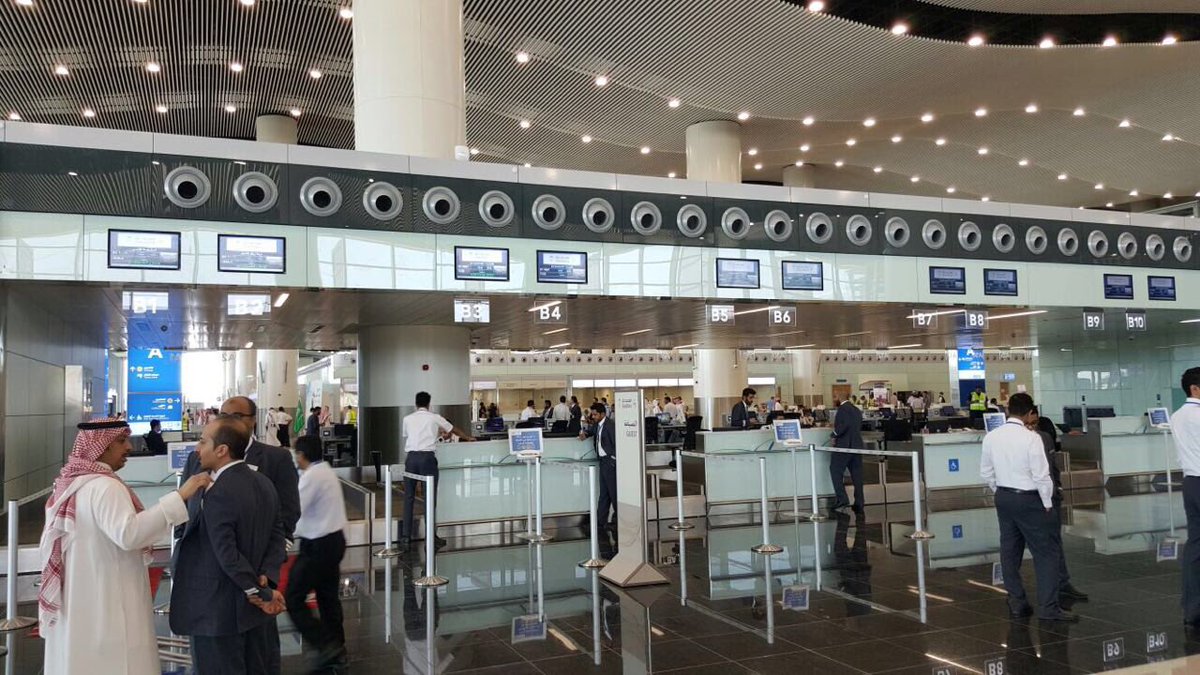
Saudi Arabia violates article 13 of the Universal Declaration of Human Rights, which states that “Everyone has the right to leave any country, including his own, and to return to his own country”. It also violates the International Covenant on Civil and Political Rights, which states that “every person lives legally in a country has the right to move and choose his place of residence within that territory and the right of every individual to leave any country, including his own.”
According to the documentation of the European Saudi Organization for Human Rights, Saudi Arabia systematically prohibits individuals from having the right to travel, in revenge for their activities or for defending human rights, by issuing harsh prison sentences followed by travel ban, without legal standards. In addition, most judicial sentences issued against human rights defenders and activists contain a travel ban sentence that begins after the end of the prison term without any legal justification.
In addition to the sentences, Saudi government is now using the travel ban against the families of activists and human rights defenders in an illegal and extrajudicial manner. Saudi Arabia's expanding use of the travel ban without legal grounds confirms that it uses it for revenge purposes or to pressure individuals to stop their activity or to threaten them.
In principle, Saudi law allows the government to impose a travel ban in a number of cases; First, it provides specific exceptional circumstances in which the judiciary can impose a travel ban, such as persons convicted of drug trafficking offenses, and in cases required by judicial proceedings.
Article 6 of the Travel Documents Regulations stipulates that "travel may be prohibited only by a judicial decision or by a decision of the Minister of the Interior relating to security and for a specified period of time, in both cases the banned person should be informed within a period not exceeding one week from the date of the sentence or the decision preventing travel."
Although the use of the travel ban is limited to a court ruling with compelling reasons, or a security-related decision made by the Minister of Interior, the Saudi government is using it reprisal and without legal basis." In addition to a broad definition of security threating charges, travel is prohibited arbitrarily and without prior notice.
- In 2014, human rights defender Samar Badawi was banned from traveling when she was on her way to a human rights conference in Belgium. "The decision did not specify the duration of the travel ban, and the Saudi government arrested her later in 2018 for nearly 3 years, but she remains banned from travel."
- In 2011, the Saudi government banned Sheikh Salman al-Oadah from traveling to Egypt and he was informed of the decision at King Khaled International Airport without being informed of the ban. In 2015 the Saudi government lifted the travel ban. Sheik Salman al-Ouda was arrested in 2017 and the Public Prosecution is still asking for his execution. Months after his arrest, al-Oadah's children, including two minors, were banned from traveling on the grounds of unknown reasons till now.
- In 2018, at the airport while they were attempting to travel, Loujain Alhathloul parents knew they were banned from traveling outside Saudi Arabia. The family has tried to find out why they were banned from traveling by communicating with the Ministry of Interior and the Head of State Security, and they have not been given any legal justification. Because of the lack of knowledge of the body responsible for the travel ban, the family was unable to file any official complaint.
In addition, the Saudi judiciary combine harsh sentences for human rights defenders and activists with travel bans for similar periods of time. This appears to be an act of revenge to restrict human rights work and to prevent activists from returning to exercise their human rights activities after their release.
- On February 10, 2021, human rights defender Lujain Al-Hathloul was released on parole, where she was banned from travel for five years. On March 2, 2021, she attended an appeal against her travel ban. Currently, she is still banned from travel for five years.
- The founding member of the Civil and Political Rights Association, Hassem, Abdul Rahman al-Hamed, was sentenced to nine years in prison, followed by a 9-years of travel ban and a fine.
- Abdul Aziz al-Shubaily, a member of Civil and Political Rights Association, was sentenced to eight years in prison, with a similar period of travel and social media ban following the completion of his prison term.
- Dr. Mohamed Al-Hadeef was sentenced to five years in prison, followed by a similar period of travel ban and a ban on writing on social media.
- Human rights defender Issa al-Hamid is sentenced to 11 years in prison, and 11-years of travel ban and a fine.
Conclusion: The judicial rulings and administrative decisions of travel ban against human rights defenders and activists shows that Saudi government is using this punishment in a reprisal manner. This includes preventing them from engaging in human rights activism, restricting any practices and continuing to threaten arrest at any moment, even after their sentences have expired. The Saudi government is also using the punishment to threaten their families, restrict their movement and thus increase pressure on activists. The organization confirms that the use of the travel ban in this way is a policy of intimidating and restricting activists.
